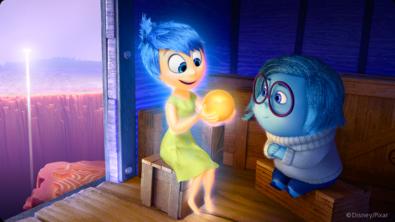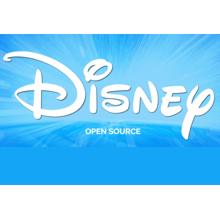| Disney Establishes Open Source Program |
| Written by Alex Armstrong | |||
| Monday, 24 October 2016 | |||
|
The news here isn't that Disney has just open sourced some of its software projects. Rather it has set up a website to draw attention to projects that have in the past been open sourced, presumably with the aim of attracting new contributors.
The sparklingly new website explains: Open Source Software is important to The Walt Disney Company. Disney has established an Open Source Program to encourage our developers to utilize Open Source, contribute to Open Source projects, and to release software as Open Source. We’ve created this site to highlight Disney’s Open Source projects. Unsurprisingly this move has met with a certain amount of negativity on the part of the developer community. Disney's ideals and practices, making money, refusing to share assets in other circumstances would be in the public domain - yes I am referring to Mickey Mouse - and being generally grabby, hardly seem to square with those of open source where trust and generosity are considered essential. You only have to look at the amendments made to the standard Apache 2 License for OpenSubdiv, one of the two currently Featured Open Source Projects to be reminded that Disney is ensuring that open sourcing its projects doesn't loosen it grip: Trademarks. This License does not grant permission to use the trade
names, trademarks, service marks, or product names of the Licensor
and its affiliates, except as required to comply with Section 4(c) of
the License and to reproduce the content of the NOTICE file.
The reason that OpenSubDiv, which is a a set of open source libraries that implement high performance subdivision surface (subdiv) evaluation on massively parallel CPU and GPU architectures, and produces effects like those shown below, isn't for its license terms but because a new version, 3.1.0 has just been released.
The other featured project, USD, also comes originally from Pixar Animation Studios where it has been under development since 2004 and was only open sourced a few months ago and is now at Version 0.7.1. According to its description: Universal Scene Description (USD) is an efficient, scalable system for authoring, reading, and streaming time-sampled scene description for interchange between graphics applications. Ten other projects are listed on the Disney Open Source site, disney.github.io. They are all on Github, apart from Dynamica, a plug-in for Maya that according to its listing was used to used to model the thousands of packing peanuts seen in BOLT. Its source code is on the now defunct Google Code Archive from where a tarball of project source, issues, and wikis will be available to download until the end of 2016. Of the non-featured projects on GitHub three seem more or less abandoned: BRDF Explorer - for the analysis of bidirectional reflectance distribution functions Partio - C++ library for reading, writing and manipulating a variety of standard particle formats Ptex - texture mapping system for production-quality rendering Another that has just three contributors, including one who showed a burst of activity this spring. Like the two featured ones it originated from Pixar Animation Studios, but is a management tool rather than related to computer graphics: ruby-jss - a Ruby framework for interacting with the REST API of the JAMF Software Server (JSS), the core of the Casper Suite, an enterprise-level management tool for Apple devices. Of the other five that seem to have life left in them, three are to do with computer graphics: SeExpr - a simple expression language used by Disney to provide artistic control and customization to its core software. OpenEXR - a high dynamic-range (HDR) image file format developed by Industrial Light & Magic for use in computer imaging applications Alembic - open computer graphics interchange framework that distills complex, animated scenes into a non-procedural, application-independent set of baked geometric results analogous to the distillation of lighting and rendering scenes into rendered image data. The other two are administrative: munki - a set of tools that, used together with a webserver-based repository of packages and package metadata, can be used by OS X administrators to manage software installs (and in many cases removals) on OS X client machines. Reposado is a set of tools written in Python that replicate the key functionality of Mac OS X Server's Software Update Service. Disney's new page seems to be as much to do with GitHub drawing attention to the ever-improving status of open source as to its own contributions to the Octoverse. However, the two featured projects do seem to be at the forefront of computer graphics technology and exciting for that reason too.
More InformationRelated ArticlesGitHub Octoverse Reveals The State Of Open Source GitHub Platform and Community Improvements
To be informed about new articles on I Programmer, sign up for our weekly newsletter, subscribe to the RSS feed and follow us on Twitter, Facebook, Google+ or Linkedin.
Comments
or email your comment to: comments@i-programmer.info |
|||
| Last Updated ( Monday, 24 October 2016 ) |





